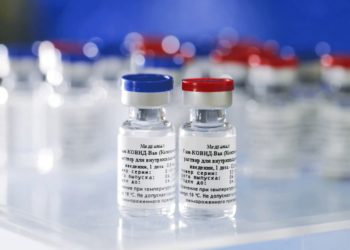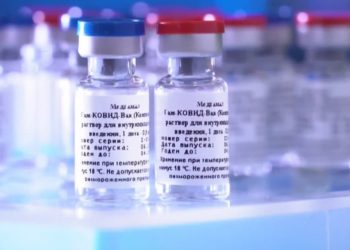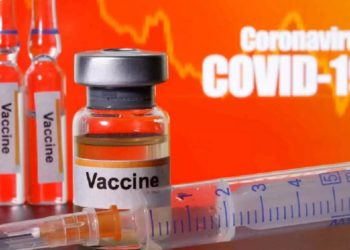Takeda Pharmaceutical Company Limited announced the presentation of real-world evidence from two analyses evaluating the safety profile of Entyvio® (vedolizumab), during the 25th United European Gastroenterology (UEG) Week in Barcelona, Spain (28 October – 1 November ).
It includes a systematic review and meta-analysis of real-world safety outcomes reported for Entyvio in ulcerative colitis (UC) or Crohn’s disease (CD), as well as a database analysis of the real-world use of immunosuppressive (IM) therapy in people living with inflammatory bowel disease (IBD) who initiated Entyvio treatment in the U.S.1,2
A systematic review and meta-analysis of real-world outcomes screening 218 published studies from MEDLINE-, Cochrane-, and EMBASE-indexed publications and conference abstracts from May 1, 2014–January 10, 2017 examined safety events reported after use of Entyvio in patients with UC or CD. A total of 33 studies reported data on 2,857 Entyvio-treated patients (CD: 1532; UC: 829) over an Entyvio exposure/follow-up period ranging 0.5–18 months. In the meta-analysis, pooled adverse event (AE) rates in Entyvio-treated patients were reported for infections, serious AEs and serious infections.1 These reported rates were consistent with previous vedolizumab clinical trial results in patients with moderate to severe UC or CD and support the long-term safety profile of Entyvio in clinical practice.1,3
“Real-world data furthers our understanding of the efficacy and safety signals we see in placebo-controlled registration trials, which have strict selection criteria and may not be illustrative of the patient population seen in clinical practice. A meta-analysis adds stability to such real-world observations, especially when based on very large patient numbers. In this case, vedolizumab real-world data were systematically collected and analyzed with the rates of serious infections, infusion-related reactions and malignancies consistent with data previously reported in clinical trials in patients with moderate to severe UC or CD,” said Stefan Schreiber, M.D., Ph.D., Professor of Medicine and Gastroenterology, Translational Inflammation Research, Christian Albrechts University, Kiel, Germany.”
Results from a second U.S-specific analysis assessing the real-world use of immunosuppressives (IM) across a total of 567 patients, identified via The Explorys Universe database, also provide information on the safety profile of Entyvio. Of the 567 patients (58.6% female; 41.4% male), 68.4% had CD and 31.6% had UC. The mean age at index was 44 and on average, patients initiated vedolizumab 4.5 years following their initial diagnosis. The findings report, in real-world clinical practice, of the 45.4% of patients without a history of IM therapy, 87% of patients treated with Entyvio were not on IM therapy during follow-up. Of the 54.6% of patients with a history of IM therapy, 61% of patients treated with Entyvio were not on IM during maintenance treatment during follow-up. In this analysis, lower rates of healthcare resource utilization were observed among patients without a history of IM use.2
“These data provide additional insight on the usage patterns, long-term safety profile and outcomes of Entyvio use in real-world clinical practice,” said Mona Khalid, Senior Director, Head of Evidence and Value Generation, Takeda Pharmaceuticals. “We look forward to the continued expansion of our body of knowledge on the safety profile of Entyvio treatment in ulcerative colitis and Crohn’s disease, and are pleased to present these real-world results at the UEG Week in Barcelona.”
In addition to these real-world analyses, other Takeda-sponsored posters presented at the UEG Week meeting include evaluations of post-marketing safety, risk factors for postoperative infection following lower gastrointestinal surgery, treatment discontinuation, flares and hospitalizations among biologic-naïve IBD patients, as well as post-hoc analyses of GEMINI 1, a pivotal Phase 3 placebo-controlled study of Entyvio induction and maintenance treatment in patients with moderately to severely active UC.4,5,6,7 For a full list of poster titles and authors, visit www.ueg.eu/week/programme/scientific-programme
About Takeda Pharmaceutical Company
Takeda Pharmaceutical Company Limited is a global, R&D-driven pharmaceutical company committed to bringing better health and a brighter future to patients by translating science into life-changing medicines. Takeda focuses its research efforts on oncology, gastroenterology and central nervous system therapeutic areas. It also has specific development programs in specialty cardiovascular diseases as well as late-stage candidates for vaccines. Takeda conducts R&D both internally and with partners to stay at the leading edge of innovation. New innovative products, especially in oncology and gastroenterology, as well as its presence in emerging markets, fuel the growth of Takeda. More than 30,000 Takeda employees are committed to improving quality of life for patients, working with our partners in health care in more than 70 countries.
For media outside Japan
Luke Willats
TEL: +41-44-555-1145
Luke.Willats@takeda.com
For Japanese media
Tatsuhiro Kanoo
TEL: +81-33-278-3634
Tatsuhiro.Kanoo@takeda.com

















